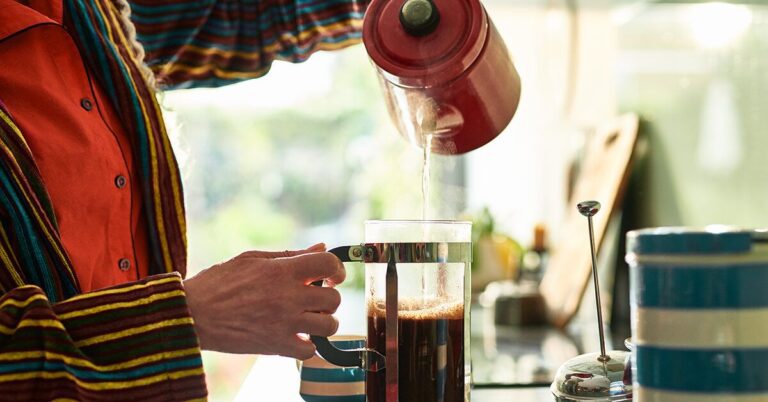There is no evidence that drinking coffee affects varicose veins. However, certain nutrients can support overall vein health, helping to reduce the risk of developing new varicose veins.
Experts know that regular exercise, maintaining a moderate weight and avoiding prolonged sedentary activity are key to preventing varicose veins.
There are also many claims that drinking certain foods and drinks, including coffee, can prevent varicose veins. But there is little evidence to support them.
Here’s what you need to know about the possible link between coffee consumption and the development of varicose veins.
ONE
Researchers found that higher predicted coffee consumption was associated with a lower risk of varicose veins in a subset of people in the UK. But the results were not replicated in a sample of Finns, who have the highest per capita coffee consumption.
The authors hypothesized that higher coffee consumption could also be associated with higher tea consumption in the UK group. Tea contains thousands of antioxidant and cholesterol-lowering compounds, which could explain the difference between the UK and Finnish groups.
While it’s still possible that drinking coffee offers some sort of benefit in preventing varicose veins, more research is needed to reach a firm conclusion.
The jury is out on whether drinking coffee prevents varicose veins, but some also claim that using coffee grounds as a scrub can get rid of varicose veins.
There is no evidence to support this claim. It is possible that topical application of coffee grounds could temporarily plump the skin and stimulate circulation, which may make varicose veins look less visible in the short term. But it is unlikely to have a long-term effect.
Keep in mind that coffee grounds could cause skin irritation in some people, so always test it on a small patch of skin before applying liberally.
Eating a balanced diet can help you maintain a moderate weight, which can reduce your risk of developing varicose veins or help with the pain and discomfort caused by existing ones. But there is no evidence that eating any particular food or drink will shrink varicose veins.
In the 2021 study mentioned above, the authors suggested that avoiding excess iron may help prevent varicose veins. But there wasn’t enough evidence to support any link between varicose veins and other nutrients they evaluated, including magnesium, calcium and vitamin B12.
While there is no one dietary change that will make varicose veins disappear, certain foods may offer some general benefits to the overall health of your veins, which may reduce your risk of developing new varicose veins:
- Foods rich in fiber: Dietary fiber is essential for healthy intestines. If you are regularly constipated, it can cause abdominal pressure that damages the surrounding venous valves. Foods high in fiber include:
- peas
- beans
- carrots
- avocado
- tomatoes
- figs
- sweet potatoes
- linseed
- nuts
- oats
- wholegrain
- Foods with potassium: Not getting enough potassium can cause your body to retain water. This increases the volume of blood in your body, which can put pressure on the vein walls. Foods high in potassium include:
- leafy vegetables
- winter squash
- almonds
- salmon
- avocado
- bananas
- beets
- broccoli
- potatoes
- lentils
- Foods with flavonoids: Flavonoids are compounds known to help improve cardiovascular health by boosting blood flow, lowering blood pressure, and dilating blood vessels. Foods rich in flavonoids include:
- garlic
- onions
- peppers
- broccoli
- leafy vegetables
- grapes
- citrus fruits
- berries
- apples
According to a
- Rutoside: The bioflavonoid rutin is found in many plants such as apples, citrus fruits, buckwheat, St. John’s wort and Ginkgo biloba. It has anti-inflammatory, antioxidant and anti-diabetic properties. It can help strengthen blood vessels, preventing them from turning into varicose veins. It is sometimes taken as a dietary supplement to help manage spider veins and varicose veins.
- Centella asiatica: Also known as Gotu kola, this native Asian plant can help strengthen weakened venous valves that can lead to venous insufficiency or varicose veins. It can be applied topically or taken orally in pill form.
- Grape Seed Extract: Grape seed extract is made from the seeds of wine grapes and is often used as a dietary supplement for venous insufficiency. It could benefit vein health due to its high amounts of vitamin E, flavonoids and other beneficial compounds.
Although coffee won’t help you get rid of varicose veins, there are several effective treatment options to consider:
- Sclerotherapy: This is currently the most popular treatment for spider veins and varicose veins. It involves injecting a chemical solution into the veins that seals them. They then break down and decompose.
- Laser treatment: Laser technology heats the veins, sealing them so that they continue to break down over several weeks.
- Intravenous removal: This is a more invasive method used to treat varicose veins in the legs. It involves cutting into the skin and using laser or radio frequency technology to break up the veins.
- Surgery: This may be an option for larger veins that do not respond to other treatments.
Many ways to reduce your risk of developing varicose veins initially include:
- exercising regularly
- maintaining a moderate weight
- elevating your legs when sitting or lying down
- avoiding prolonged sedentary activity
- avoiding smoking
- wearing compression stockings
There is currently no evidence to suggest that drinking coffee causes or worsens varicose veins. There’s also no evidence that applying coffee-ground scrubs to veins will help them fade. While certain nutrients can help support overall vein health, no food or drink will remove varicose veins.


